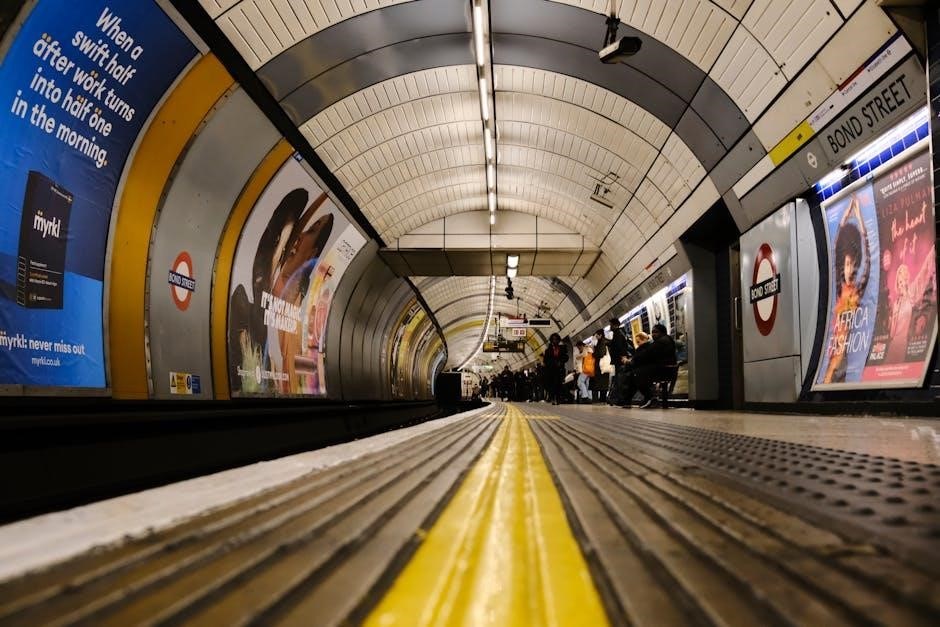Pakistan Tehreek-e-Insaf (PTI) emerges as a major political force in the 2024 elections, with a strong candidate list aiming to secure significant seats․ The election symbol, constituency details, and candidate profiles highlight PTI’s strategic preparation․
Overview of Pakistan Tehreek-e-Insaf (PTI)
Pakistan Tehreek-e-Insaf (PTI), led by Imran Khan, is a prominent political party in Pakistan known for its focus on anti-corruption and economic reforms․ Since its inception, PTI has advocated for social justice and transparency in governance․ Having come to power in 2018, PTI’s tenure was marked by significant policy changes until 2022․ Now, as the 2024 elections approach, PTI is strategically positioning itself with a strong candidate list, aiming to regain power and continue its agenda of national development and reform․ The party’s influence remains significant, and its preparation for the upcoming elections reflects its commitment to achieving these goals․
Significance of the 2024 General Elections in Pakistan
The 2024 General Elections in Pakistan hold immense significance as they mark a crucial turning point in the nation’s political landscape․ These elections are expected to shape the country’s future trajectory, with key issues like economic recovery, governance reform, and social development taking center stage․ The polls will determine the next government’s composition, influencing policies that impact millions of Pakistanis․ Political parties, including PTI, are mobilizing their resources to secure a majority, reflecting the high stakes involved․ Additionally, these elections will gauge public sentiment toward incumbent and emerging political forces, providing insight into the nation’s priorities and aspirations․ The 2024 elections are not just a contest for power but a defining moment for Pakistan’s democratic process and its path toward stability and progress․

PTI Candidate List 2024: Key Highlights
PTI’s 2024 candidate list is comprehensive, featuring prominent names like Usman Hamza Awan for NA-120 and Wasim Qadir for NA-121, with election symbols such as CHARPAI and CRICKET STUMPS․
Notable Candidates for National Assembly Seats
PTI has fielded several prominent candidates for National Assembly seats in the 2024 elections․ Usman Hamza Awan is contesting from NA-120 Lahore-IV with the election symbol CHARPAI, while Wasim Qadir is running for NA-121 Lahore-V under the symbol CRICKET STUMPS․ Latif Khosa and Afzaal Azeem Pahat Advocate are also key candidates for NA-122 and NA-123, respectively, with symbols K and RADIO․ These candidates bring diverse backgrounds and strong political acumen, making them formidable contenders․ Their selection reflects PTI’s strategic focus on urban and rural constituencies, aiming to maximize its electoral impact․ The party has ensured a balanced mix of experienced leaders and fresh faces to appeal to a broad voter base․ This lineup underscores PTI’s preparedness and ambition to secure significant seats in the upcoming polls․
Provincial Assembly Candidates and Their Constituencies
PTI’s provincial assembly candidates for the 2024 elections showcase a diverse and strategic lineup․ In Punjab, candidates like Ali Asif Baga (PP-75 Sargodha) and Qazi (PP-1) are contesting key seats, reflecting PTI’s strong presence in the region․ Similarly, in other provinces, PTI has nominated candidates who are well-connected with local communities, ensuring a grassroots campaign approach․ These candidates are expected to leverage PTI’s manifesto, focusing on economic and social reforms, to garner support․ The selection process was rigorous, ensuring only the most capable individuals were chosen․ This provincial strategy aims to strengthen PTI’s influence at the local level, complementing its national aspirations․ By fielding such a robust lineup, PTI seeks to make significant inroads in provincial legislatures, reinforcing its position as a leading political force․
PTI Ticket Holders for Key Constituencies
PTI’s ticket holders for key constituencies in the 2024 elections reflect a strategic selection of candidates with strong local influence․ In Lahore, notable candidates include Usman Hamza Awan (NA-120 Lahore-IV) with the election symbol CHARPAI, Wasim Qadir (NA-121 Lahore-V) with CRICKET STUMPS, and Latif Khosa (NA-122 Lahore-VI) with the symbol K․ These candidates were chosen for their credibility and deep connections with their constituencies․ The selection process emphasized candidates’ ability to resonate with local voters and advocate for PTI’s policies․ Election symbols like CHARPAI and CRICKET STUMPS are culturally relatable, enhancing PTI’s outreach․ This targeted approach aims to maximize PTI’s electoral impact in critical areas, ensuring a strong presence in both urban and rural regions․ By fielding such candidates, PTI seeks to capitalize on its popularity and deliver a robust performance in the 2024 elections․

Constituency-Wise Breakdown of PTI Candidates
PTI’s candidate list for 2024 highlights key constituencies, with prominent candidates like Usman Hamza Awan (NA-120 Lahore-IV) and Wasim Qadir (NA-121 Lahore-V), showcasing strategic selections for maximum electoral impact․
Candidates for Lahore Constituencies (NA-120 to NA-123)
For Lahore’s key constituencies, PTI has fielded strong candidates․ Usman Hamza Awan is contesting from NA-120 Lahore-IV with the election symbol CHARPAI․ Wasim Qadir represents NA-121 Lahore-V, symbolized by CRICKET STUMPS․ Latif Khosa is the candidate for NA-122 Lahore-VI, with the symbol K․ Meanwhile, Afzaal Azeem Pahat Advocate is contesting NA-123 Lahore-VII under the symbol RADIO․ These selections reflect PTI’s strategic focus on Lahore, aiming to capitalize on its political influence in the region․ The candidates bring diverse backgrounds, ranging from political experience to grassroots connections, ensuring a robust campaign presence․ PTI’s Lahore candidates are expected to play a pivotal role in shaping the party’s electoral success in 2024․
Candidates for Karachi and Other Major Cities
PTI has finalized its candidates for key constituencies in Karachi and other major cities, showcasing a strong lineup․ For NA-239 Karachi-I, Aftab Siddiqui is contesting with the election symbol BAT․ Imran Ismail is the candidate for NA-240 Karachi-II, symbolized by CRICKET BAT․ Faisal Vawda represents NA-241 Karachi-III under the symbol LION․ Meanwhile, Attaullah Sheikh is contesting NA-242 Karachi-IV with the symbol CHAIR․ These selections highlight PTI’s strategic focus on urban centers, leveraging experienced candidates to maximize voter outreach․ The party aims to capitalize on its existing support base in Karachi, while also expanding its influence in other major cities․ With a mix of seasoned politicians and fresh faces, PTI’s candidates in these constituencies are poised to make a significant impact in the 2024 elections․
Candidates for Rural and Underdeveloped Areas
PTI has strategically nominated candidates for rural and underdeveloped areas, focusing on grassroots engagement․ For instance, in NA-238 (Dera Ghazi Khan), Sardar Saifuddin Khan Khosa is contesting with the election symbol LION․ Similarly, Munis Elahi is the PTI candidate for NA-156 (Lodhran), symbolized by BAT․ These candidates emphasize local issues such as agricultural reforms, water scarcity, and infrastructure development․ PTI’s rural candidates are often local leaders with deep community ties, ensuring they resonate with voters․ Their campaigns highlight PTI’s commitment to addressing disparities in underdeveloped regions․ By fielding strong candidates in these areas, PTI aims to consolidate its support in rural Pakistan, which is crucial for its overall performance in the 2024 elections․

PTI’s Election Strategy for 2024
PTI’s 2024 strategy focuses on grassroots mobilization, digital campaigns, and highlighting key manifesto pledges like economic reforms and anti-corruption․ The party leverages public sentiment and strong candidate selection to maximize voter outreach and support․
Key Policies and Manifesto Highlights
PTI’s 2024 manifesto emphasizes anti-corruption, economic stability, and social justice․ The party pledges to reform institutions, ensure transparency, and promote meritocracy․ Key policies include job creation, healthcare access, and education reform․ PTI also focuses on empowering women and marginalized communities․ The manifesto highlights plans to strengthen local governance and improve infrastructure․ Environmental sustainability and energy independence are also prioritized․ PTI aims to reduce poverty and inequality through inclusive economic policies․ The party’s commitment to rule of law and accountability remains central to its agenda․ These policies align with PTI’s vision of a prosperous, just, and sovereign Pakistan, resonating with its voter base and addressing national challenges effectively․
Focus Areas: Economic, Social, and Political Reforms
PTI’s 2024 campaign focuses on comprehensive reforms across economic, social, and political domains․ Economically, the party aims to stabilize Pakistan’s economy through sustainable policies, reducing debt, and fostering investment․ Social reforms include improving healthcare, education, and women’s empowerment, ensuring equal opportunities for all․ Politically, PTI advocates for institutional transparency, anti-corruption measures, and strengthening the rule of law․ The party also emphasizes decentralization of power to enhance local governance and public service delivery․ Environmental sustainability and energy independence are key priorities to address climate challenges․ These reforms are designed to uplift marginalized communities, reduce poverty, and promote inclusive growth․ By addressing these critical areas, PTI seeks to create a more equitable and prosperous society, aligning with its vision of a “Naya Pakistan․” These focus areas reflect PTI’s commitment to addressing Pakistan’s multifaceted challenges effectively․
PTI’s Campaign Slogans and Public Outreach
PTI’s 2024 election campaign is driven by powerful slogans that resonate with its vision of a “Naya Pakistan․” The party’s central slogan, “Naya Pakistan,” emphasizes transformation and renewal, appealing to voters seeking change․ Other notable slogans include “Tabdeeli Aagai Hai” (Change Has Come) and “Insaf Iqbal Hai” (Justice is the Key to Prosperity), which highlight PTI’s commitment to justice and accountability․ The party has leveraged social media, rallies, and public meetings to connect with voters, particularly the youth․ Imran Khan’s charismatic leadership and direct engagement with the public have further amplified the campaign’s reach․ PTI’s outreach strategy focuses on grassroots mobilization, ensuring that its message of economic revival, social equality, and political reform reaches every corner of Pakistan․ These slogans and outreach efforts aim to inspire hope and mobilize voters to support PTI’s vision for a prosperous and just future․

Importance of the PTI Candidate List PDF
The PTI Candidate List PDF provides transparency, detailing each candidate’s constituency, election symbol, and profile․ It ensures voters can make informed decisions, fostering trust and accountability in the electoral process․
Accessing the Official PTI Candidate List for 2024
The official PTI candidate list for 2024 is available on the party’s website and authorized platforms․ Voters can download the PDF document, which includes names, constituencies, and election symbols․ This ensures transparency and easy access to critical election information․
How to Verify Candidate Information Online
To verify PTI candidate information for the 2024 elections, visit the official PTI website or authorized election platforms․ Download the PTI candidate list 2024 PDF for detailed insights․ Cross-reference the data with the Election Commission of Pakistan’s official portal to ensure accuracy․ Additionally, check the election symbols assigned to each candidate, such as CHARPAI for NA-120 Lahore, to confirm authenticity․ For further validation, refer to trusted news sources and official PTI social media channels․ This process ensures voters have reliable information to make informed decisions․ Be cautious of unverified sources to avoid misinformation․
Role of Election Symbols in PTI’s Campaign
Election symbols play a pivotal role in PTI’s 2024 campaign, serving as a visual identity for candidates and the party․ Each PTI candidate is assigned a unique symbol, such as CHARPAI for NA-120 Lahore, ensuring easy recognition by voters․ These symbols are strategically chosen to resonate with the party’s ideology and the candidate’s profile, enhancing voter connect․ The use of consistent symbols across campaign materials, from posters to digital platforms, reinforces brand unity․ Voters, especially in areas with lower literacy rates, rely heavily on these symbols to identify PTI candidates․ This system simplifies decision-making and strengthens voter loyalty․ By leveraging election symbols, PTI ensures its campaign remains visually cohesive and memorable, aiding in voter recall during the election process․

Election 2024: PTI’s Chances and Challenges
PTI’s strong candidate lineup and strategic symbols boost its 2024 prospects, but challenges like political competition and internal management could impact its performance․
PTI’s Stronghold Constituencies
PTI has traditionally performed well in certain constituencies, particularly in urban and rural areas of Punjab and Khyber Pakhtunkhwa․ Key strongholds include Lahore’s NA-120 to NA-123, where candidates like Usman Hamza Awan, Wasim Qadir, Latif Khosa, and Afzaal Azeem Pahat Advocate are contesting․ These areas have historically shown strong support for PTI’s policies and leadership․ Similarly, PTI has a robust presence in Karachi, with candidates targeting key urban seats․ Rural areas, particularly in Punjab and KP, remain crucial for PTI’s success due to their voter base․ The party’s election symbols, such as CHARPAI, CRICKET STUMPS, K, and RADIO, further reinforce their identity in these regions․ PTI’s focus on these constituencies reflects its strategic approach to maximizing votes and securing a strong position in the 2024 elections․
Challenges Faced by PTI Candidates
PTI candidates face significant challenges in the 2024 elections, including political opposition, legal scrutiny, and voter sentiment shifts․ The party’s candidates must navigate intense competition from rival parties, particularly in key constituencies like Lahore and Karachi․ Additionally, PTI has faced issues with candidate selection, leading to internal dissent in some regions․ Legal challenges, such as the scrutiny of nomination papers, have also posed hurdles for some candidates․ Furthermore, public perception and voter confidence play a crucial role, with some areas showing declining support for PTI․ Despite these obstacles, PTI remains determined to secure a strong position in the elections, leveraging its campaign strategies and manifesto to address these challenges effectively․
Public Perception and Voter Sentiment
Public perception and voter sentiment play a pivotal role in shaping PTI’s electoral prospects․ While PTI has maintained a strong base, particularly in urban areas, recent surveys indicate mixed sentiments among voters․ Issues such as economic instability, political instability, and internal party conflicts have influenced public opinion․ PTI’s campaign slogans and policies, focusing on anti-corruption and economic reforms, resonate with many, but challenges in governance during their previous tenure have led to skepticism․ Voter sentiment in rural areas, crucial for provincial assembly seats, appears divided, with some communities expressing dissatisfaction over unfulfilled promises․ Despite this, PTI’s charismatic leadership and grassroots outreach continue to mobilize significant support․ The final outcome will depend on how effectively PTI addresses these concerns and leverages its campaign strategies to sway undecided voters․
PTI’s comprehensive candidate list reflects strategic preparation for the 2024 elections, aiming to capitalize on public sentiment and key policies․ The outcome will significantly shape Pakistan’s political future and PTI’s prospects․
PTI’s Preparedness for the 2024 Elections
PTI has demonstrated robust preparedness for the 2024 elections, with a well-organized candidate list and strategic campaign strategies․ The party finalized its nominees early, ensuring thorough scrutiny of nomination papers․ Key candidates like Usman Hamza Awan (NA-120), Wasim Qadir (NA-121), Latif Khosa (NA-122), and Afzaal Azeem Pahat Advocate (NA-123) reflect PTI’s strong organizational structure․ The party’s focus on key policies, such as economic and social reforms, highlights its commitment to addressing voter concerns․ Public outreach campaigns, including rallies and digital engagement, underscore PTI’s efforts to connect with voters․ With a clear manifesto and a motivated candidate lineup, PTI appears well-prepared to contest the elections effectively, aiming to capitalize on its stronghold constituencies and public sentiment․
Expected Impact of PTI’s Candidate List on the Election Outcome
PTI’s candidate list for 2024 is expected to significantly influence the election outcome, leveraging strongholds in key constituencies like Lahore and Karachi․ The inclusion of seasoned candidates such as Usman Hamza Awan and Wasim Qadir, coupled with strategic symbol allocations, may enhance voter appeal․ The party’s focus on economic and social reforms resonates with its base, potentially swaying undecided voters․ However, challenges like competition in Punjab Assembly seats and opposition strategies could affect PTI’s momentum․ The clarity and organization of the candidate list, accessible via PDF, signal PTI’s seriousness, which may boost its electoral prospects․ Overall, PTI’s strategic nominations and campaign outreach are likely to shape the election dynamics, making it a formidable contender in the 2024 polls․
Future Prospects for PTI Post-2024 Elections
The 2024 elections will significantly shape PTI’s future trajectory in Pakistani politics․ A strong performance could solidify its position as a leading national party, potentially paving the way for another term in government․ PTI’s focus on economic reforms, social justice, and anti-corruption is likely to resonate with its core constituency, ensuring long-term relevance․ However, the party must address internal cohesion and adapt to evolving political dynamics․ Imran Khan’s leadership remains pivotal, but fostering a robust second line of leadership will be crucial for sustained success․ Regardless of the 2024 outcome, PTI is poised to remain a dominant force, influencing policy and opposition strategies․ Its ability to maintain public trust and deliver on promises will determine its legacy and future prospects in Pakistan’s political landscape․



